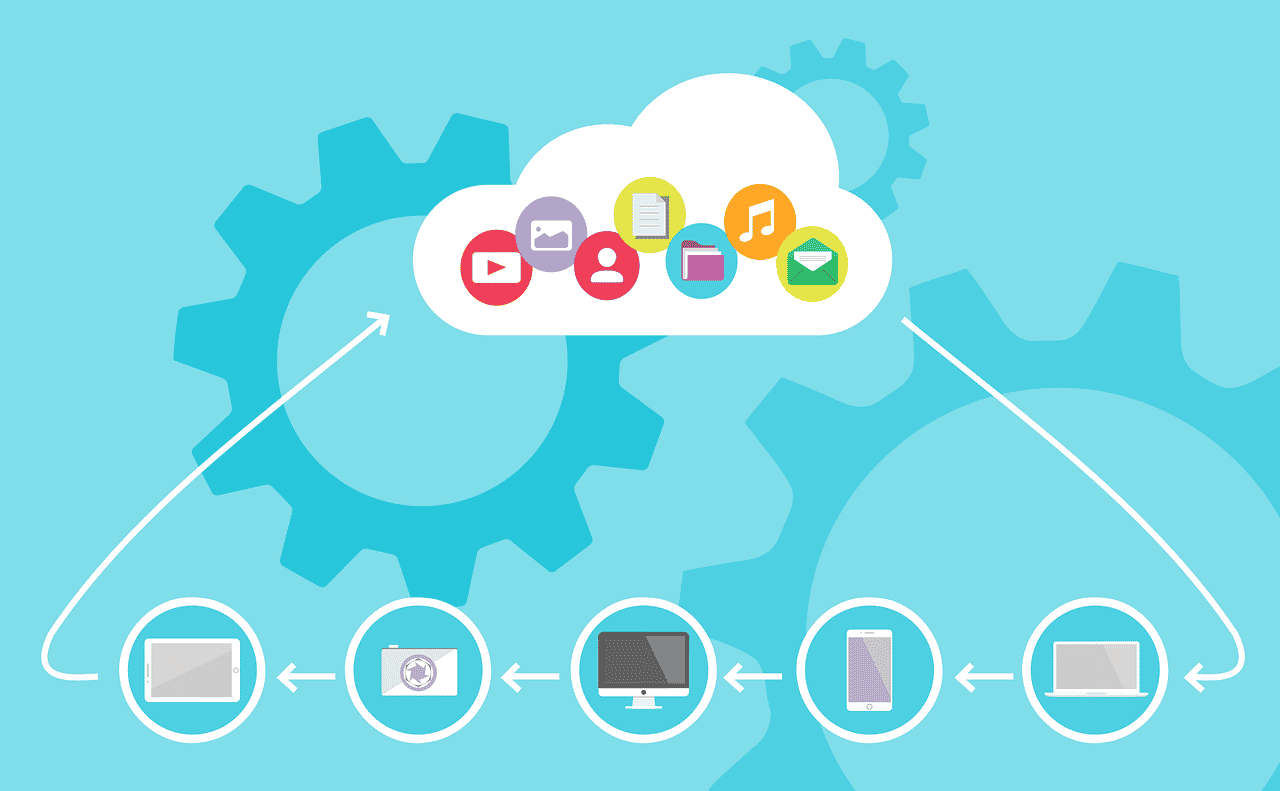In the rapidly evolving digital landscape, the Internet of Things (IoT) has emerged as a transformative force, connecting the physical and digital worlds like never before. As our world becomes increasingly interconnected, IoT technology drives innovation across industries, creating exciting career opportunities for individuals with a passion for technology and a desire to shape the future.
Welcome to the ultimate guide to IoT career opportunities in 2025. Whether you’re a seasoned professional looking to transition into this thriving field or a fresh graduate eager to explore the possibilities, this comprehensive guide will provide valuable insights into the diverse roles, skills, and industries driving the IoT revolution.
Throughout this guide, we will also highlight the diverse roles available in the IoT domain. Whether you aspire to be an IoT architect, data scientist, cybersecurity analyst, software developer, or product manager, we will provide an in-depth understanding of each role, its responsibilities, and the skills needed to excel.
Furthermore, we will discuss the educational pathways and training options for aspiring IoT professionals. From degree programs and certifications to online courses and specialized training, we will explore the various avenues for acquiring the knowledge and skills necessary to thrive in this fast-paced industry.
The IoT revolution is already well underway, and as businesses and individuals continue to adopt and leverage this technology, the demand for skilled professionals will only grow. By immersing yourself in this ultimate guide to IoT career opportunities in 2025, you will gain the insights and knowledge needed to navigate this exciting and ever-evolving field, positioning yourself for a successful and rewarding career at the forefront of technological innovation. So, let’s dive in and discover the limitless possibilities of the Internet of Things!
What is IoT?
The Internet of Things (IoT) refers to a network of physical devices, vehicles, appliances, and other objects that are embedded with sensors, software, and connectivity capabilities. These devices collect and exchange data over the internet, enabling them to interact with each other, perform tasks, and provide valuable insights.
IoT essentially extends the power of the internet beyond traditional computing devices like computers and smartphones, enabling everyday objects to become “smart” and interconnected. These objects, often referred to as “smart devices” or “smart objects,” can communicate with each other and with humans, creating a network of connected devices that work together to gather and share data.
The IoT ecosystem involves a combination of hardware, software, and network components. The hardware includes sensors, actuators, and embedded systems that allow objects to collect data and perform actions. Software plays a crucial role in managing and analyzing the collected data, while network infrastructure facilitates the communication and transfer of data between devices.
The primary goal of IoT is to enhance efficiency, convenience, and productivity in various domains by leveraging the power of connectivity and data. For example, in a smart home, IoT devices like thermostats, lights, and security systems can be connected and controlled through a central hub or a smartphone app, allowing homeowners to automate tasks, monitor energy usage, and enhance security.
IoT has vast applications across industries such as healthcare, manufacturing, agriculture, transportation, and cities. In healthcare, IoT devices can monitor patient health remotely, enabling timely interventions and reducing hospital visits. In manufacturing, IoT enables predictive maintenance, optimizing production processes, and improving efficiency. In agriculture, IoT devices can monitor soil moisture levels and automate irrigation systems, optimizing crop yields. These are just a few examples of how IoT is transforming industries and improving the quality of life.
In this blog, we shall try to pen down some of the assorted career opportunities in this domain. For Full-fledged courses in IoT, check out Great Learning’s IoT Certificate Course. Power ahead in your career by learning cutting-edge technologies from IIT Madras and Great Learning with online classes and mentor training sessions.
- IoT Career Opportunities
- Responsibilities of an IoT Professional
- Skills Required
- Salary Trends in IoT
- Conclusion
IoT Career Opportunities
1. Data Analytics
In simple terms, it is one of the Internet of Things jobs that is aimed at making sense of whatever data you collect using your IoT devices which is otherwise just a heap of data. This role is essential in a firm as in this job; you should be very strong in statistical understanding, able to find correlations, tabulate your findings from data in a graphical and presentable manner and have knowledge of working with statistics-based languages like R, SAS as well as some Python libraries like NumPy, Pandas, etc. An individual having all these skills is considered an asset to a company.
2. Network and the Networking Structure
In the world of IoT, the hardware setup to deploy solutions can get complex, and the huge chunks of sensors and wires rigged up to different peripherals and ports contribute majorly to this complexity. In case even a single wire/connection fails due to some reason, the machine may not work as desired or not work at all. Hence, this calls for the need for a Network Architect. Professionals specializing in Network Setups and Networking would be required to ensure that all the connections work well. In short, employees in this field must be able to design an efficient network architecture that is foolproof of several wiring problems and follows all the communication protocols effectively.
3. Security
One of the core problems of the Internet is safeguarding the users from hackers and malicious programs. Therefore one of the Internet of Things Jobs is dedicated to securing your devices. If this part of your IoT solution is compromised and a hacker gains control of one device, then eventually, the network does not stand invulnerable anymore, and all your data is put at risk. The professionals in this field are responsible for doing regular testing and challenging the system’s integrity with different techniques, find and fix security flaws wherever the system fails and put the whole process of using an IoT Device under a smooth and secured connection bubble. To work in this field, you must know Vulnerability Evaluation, Public Key Encryption, and know techniques to secure wireless networks. Cyber Security understanding is a good way to start towards this.

4. Hardware and Devices
What makes a device ‘Smart’? Is it just by connecting any device to a network? Well, it is more than that. Organizations need to modify their devices to be able to fit the networks and work accordingly. Though it’s mostly an integration of several sensors and transmitters, it is one of the core jobs in the IoT industry. To deem fit for this IoT job, professionals must have the know-how of working with different sensor modules, transmitters, protocols, and integrators like Zigbee, BLE, etc.; and keep themselves updated with working towards any new device/technology that enters the mainstream.
5. User Interface
This IoT job seems easy to design compared to the jobs mentioned above but requires a whole amount of creativity as it is the UI that would sell your product in the market. A normal customer may not understand all the specifications of the device but would leverage his choices based on how comfortable it is to use it. An interactive and eye-catching UI that provides all the controls to customers and understanding is one of the selling points of your IoT product. There was a time when the computers only worked on a black screen with the users using only the Command Terminal and are managed only by some professionals but, with the onset of making all these devices available to the people, it has become our daily essential, and their presentability has changed more to User-friendly mode. If you choose to be a UI developer, your task would be to ensure that users get the best experience (or UX) with your creativity and designing skills. You should be able to put yourself in the shoes of your customers, understand and fulfill their requirements.
6. Sensors And Actuator Professional
Diving deep into the field of hardware and devices, this job will need you to be well versed with the knowledge of setting up the right type of sensors or actuators that serves well for the application and meets the design specifications and power requirements of your system. Your role would also be to test different tools and continuously pick the most optimum solution for any application. You would also be responsible for researching and staying updated with the industry and researching several technologies. As a hobbyist, one could start by buying a set of sensors and trying to do small projects before upskilling to a professional level.
7. Embedded Programs Engineer
Another Internet of Things job dedicated to hardware is the most crucial part of your IoT device since it handles the software and control code. As an embedded programs engineer, your task would be to design several PCBs that match the utility of the problem under consideration and access the firmware of the device to program certain predefined and non-negotiable functions to access the networking of your device across. Integrating software engineering with non-computer devices and working closely with the hardware is the key role of Embedded Programs engineer.
8. Artificial Intelligence
AI and Machine Learning Skills become essential when the task involves big data analysis and deriving findings. To create smart applications over huge volumes of data, technologies mentioned in AI and ML help in the long run. Job seekers need to understand algorithms designed in AI, ML, and different have a strong understanding of plotting libraries to represent data efficiently.
Also Read: What is Artificial Intelligence? Types and Examples
To sum up, an IoT developer would work on
- To research, build, test, and document state-of-the-art IoT solutions with integrated electronics and firmware development.
- To develop innovative IoT mechanisms that help to monitor, execute, and perform self-diagnostic processes.
- You should be well-versed in embedded software architecture – prior experience in working with UML use-case diagrams, class-diagrams, and sequence diagrams to accurately depict system architecture is highly valued.
- To develop MEAN stack solutions.
- To learn the functionings of and implement new state-of-the-art tools/techniques to showcase experience in quick prototyping methods and structured implementation.
- To design and work on different solutions for cloud-to-edge IoT applications with customizable configuration abilities for deployment to different clients with different needs.
- To work on tackling complex real-world problems.
- To plan and work on tools to optimize the process.
Skills Required to Become an IoT Developer
Becoming an IoT developer requires a combination of technical skills, programming knowledge, and a solid understanding of the IoT ecosystem. Here are some key skills that are essential for aspiring IoT developers:
- Programming Languages: Proficiency in programming languages is crucial for IoT development. Some of the commonly used languages include:
- C/C++: These languages are commonly used for low-level programming and embedded systems, which are prevalent in IoT devices.
- Python: Python is a versatile language used for IoT development due to its simplicity, readability, and extensive library support.
- Java: Java is widely used for developing IoT applications, especially for gateway and server-side development.
- Hardware Knowledge: Understanding the hardware components and their interactions is vital for IoT development. This includes knowledge of microcontrollers, sensors, actuators, and communication protocols such as MQTT, Bluetooth, and Zigbee.
- Networking and Protocols: Familiarity with networking concepts and protocols is essential for IoT developers. Understanding TCP/IP, HTTP, MQTT, CoAP, and other communication protocols is crucial for establishing connectivity between devices and the cloud.
- Data Management and Analytics: IoT generates vast amounts of data, and being able to handle and analyze this data effectively is essential. Knowledge of data management systems, such as SQL and NoSQL databases, and data analytics tools like Apache Spark and Hadoop, is beneficial for IoT developers.
- Security: IoT devices and networks are susceptible to various security threats. Understanding security best practices, encryption techniques, authentication protocols, and secure communication protocols is crucial for safeguarding IoT systems from cyber threats.
- Cloud Computing: IoT often relies on cloud platforms for data storage, processing, and scalability. Familiarity with cloud computing platforms like AWS IoT, Microsoft Azure IoT, or Google Cloud IoT is valuable for IoT developers.
- Data Visualization: Being able to present and interpret data in a meaningful way is important for IoT applications. Knowledge of data visualization tools and frameworks like Tableau, D3.js, or matplotlib can help in creating intuitive and insightful visual representations of IoT data.
- Machine Learning and AI: As IoT becomes more advanced, integrating machine learning and AI capabilities into IoT systems is becoming increasingly important. Knowledge of machine learning algorithms, predictive analytics, and AI frameworks like TensorFlow or PyTorch can enhance the intelligence and automation of IoT applications.
- Problem-Solving and Analytical Thinking: IoT developers need strong problem-solving and analytical skills to identify, troubleshoot, and resolve issues arising during IoT solutions’ development and deployment.
- Collaboration and Communication: IoT development often involves working with multidisciplinary teams and stakeholders. Effective collaboration, communication, and teamwork skills are crucial for successfully executing IoT projects.
Salary Trends in IoT
The salary trends in IoT can vary based on factors such as job role, experience, location, industry, and the specific skills possessed by an individual. However, in general, IoT professionals tend to earn competitive salaries due to the high demand for their skills and the transformative nature of IoT technology. Here is an overview of salary trends in IoT:
- IoT Developer/Engineer: The salaries for IoT developers/engineers can range widely based on experience and skill level. Entry-level positions may start around $60,000 to $80,000 per year, while experienced professionals can earn upwards of $100,000 or more annually. Factors such as programming languages, hardware knowledge, and cloud computing expertise can influence salary levels.
- IoT Architect: IoT architects are responsible for designing and implementing complex IoT systems. They often have a deep understanding of both hardware and software components. IoT architects can command higher salaries, typically ranging from $100,000 to $150,000 per year, depending on experience, industry, and location.
- Data Scientist/Analyst: IoT generates vast amounts of data, and data scientists/analysts play a crucial role in extracting meaningful insights from this data. Their salaries can vary based on their expertise in data analysis, machine learning, and statistical modeling. Salaries for data scientists/analysts in the IoT field generally range from $80,000 to $120,000 per year.
- IoT Project Manager: Project managers in the IoT field oversee the planning, execution, and successful delivery of IoT projects. Their salaries can vary depending on experience and the size and complexity of the projects they manage. The average salary for IoT project managers typically ranges from $90,000 to $130,000 per year.
- IoT Security Specialist: With the increasing concerns around IoT security, professionals specializing in IoT security are in high demand. Salaries for IoT security specialists can range from $80,000 to $130,000 per year, depending on experience and expertise in cybersecurity, encryption, and secure communication protocols.
It’s important to note that these salary ranges are approximate and can vary significantly based on factors mentioned earlier. Additionally, salaries can vary across different countries and regions, with technology hubs and metropolitan areas often offering higher compensation due to the concentration of IoT-related industries and companies.
As the IoT field continues to evolve and grow, the demand for skilled professionals is expected to increase, potentially leading to higher salaries and additional perks for individuals with expertise in IoT-related roles and technologies.
Check out Great Learning’s Internet of Things Course and enhance your knowledge.
Conclusion
IoT is a very rapidly growing field. The current IoT career opportunities could never be even imagined or thought of. There are many fields, as we discussed, to choose from currently, and you can either go into security, design the UI, or design the various subsystems like sensors, and embedded software. The choices presented before you are endless.







